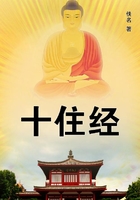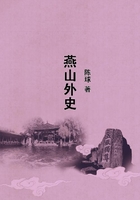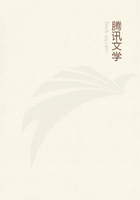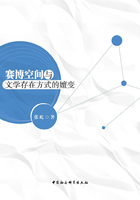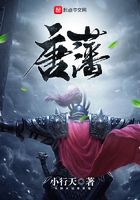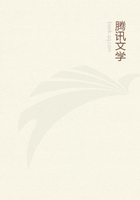In every age, and in every religion there has been justification for his bitter words, "tantum religio potuit suadere malorum"--"Such wrongs Religion in her train doth bring"--yet, one outcome of "a belief in spiritual beings"--as Tylor defines religion-- has been that man has built an altar of righteousness in his heart. The comparative method applied to the study of his religious growth has shown how man's thoughts have widened in the unceasing purpose which runs through his spiritual no less than his physical evolution. Out of the spiritual protoplasm of magic have evolved philosopher and physician, as well as priest. Magic and religion control the uncharted sphere--the supernatural, the superhuman: science seeks to know the world, and through knowing, to control it. Ray Lankester remarks that Man is Nature's rebel, and goes on to say: "The mental qualities which have developed in Man, though traceable in a vague and rudimentary condition in some of his animal associates, are of such an unprecedented power and so far dominate everything else in his activities as a living organism, that they have to a very large extent, if not entirely, cut him off from the general operation of that process of Natural Selection and survival of the fittest which up to their appearance had been the law of the living world. They justify the view that Man forms a new departure in the gradual unfolding of Nature's predestined scheme. Knowledge, reason, self-consciousness, will, are the attributes of Man."[1] It has been a slow and gradual growth, and not until within the past century has science organized knowledge-- so searched out the secrets of Nature, as to control her powers, limit her scope and transform her energies. The victory is so recent that the mental attitude of the race is not yet adapted to the change. A large proportion of our fellow creatures still regard nature as a playground for demons and spirits to be exorcised or invoked.
[1] Sir E. Ray Lankester: Romanes Lecture, "Nature and Man,"
Oxford Univ. Press, 1905, p. 21.
Side by side, as substance and shadow--"in the dark backward and abysm of time," in the dawn of the great civilizations of Egypt and Babylon, in the bright morning of Greece, and in the full noontide of modern life, together have grown up these two diametrically opposite views of man's relation to nature, and more particularly of his personal relation to the agencies of disease.
The purpose of this course of lectures is to sketch the main features of the growth of these two dominant ideas, to show how they have influenced man at the different periods of his evolution, how the lamp of reason, so early lighted in his soul, burning now bright, now dim, has never, even in his darkest period, been wholly extinguished, but retrimmed and refurnished by his indomitable energies, now shines more and more towards the perfect day. It is a glorious chapter in history, in which those who have eyes to see may read the fulfilment of the promise of Eden, that one day man should not only possess the earth, but that he should have dominion over it! I propose to take an aeroplane flight through the centuries, touching only on the tall peaks from which may be had a panoramic view of the epochs through which we pass.
ORIGIN OF MEDICINE
MEDICINE arose out of the primal sympathy of man with man; out of the desire to help those in sorrow, need and sickness.
In the primal sympathy Which having been must ever be;
In the soothing thoughts that spring Out of human suffering.
The instinct of self-preservation, the longing to relieve a loved one, and above all, the maternal passion--for such it is--gradually softened the hard race of man--tum genus humanum primum mollescere coepit. In his marvellous sketch of the evolution of man, nothing illustrates more forcibly the prescience of Lucretius than the picture of the growth of sympathy: "When with cries and gestures they taught with broken words that 'tis right for all men to have pity on the weak." I heard the well-known medical historian, the late Dr. Payne, remark that "the basis of medicine is sympathy and the desire to help others, and whatever is done with this end must be called medicine."
The first lessons came to primitive man by injuries, accidents, bites of beasts and serpents, perhaps for long ages not appreciated by his childlike mind, but, little by little, such experiences crystallized into useful knowledge. The experiments of nature made clear to him the relation of cause and effect, but it is not likely, as Pliny suggests, that he picked up his earliest knowledge from the observation of certain practices in animals, as the natural phlebotomy of the plethoric hippopotamus, or the use of emetics from the dog, or the use of enemata from the ibis. On the other hand, Celsus is probably right in his account of the origin of rational medicine. "Some of the sick on account of their eagerness took food on the first day, some on account of loathing abstained; and the disease in those who refrained was more relieved. Some ate during a fever, some a little before it, others after it had subsided, and those who had waited to the end did best. For the same reason some at the beginning of an illness used a full diet, others a spare, and the former were made worse. Occurring daily, such things impressed careful men, who noted what had best helped the sick, then began to prescribe them. In this way medicine had its rise from the experience of the recovery of some, of the death of others, distinguishing the hurtful from the salutary things" (Book I).

